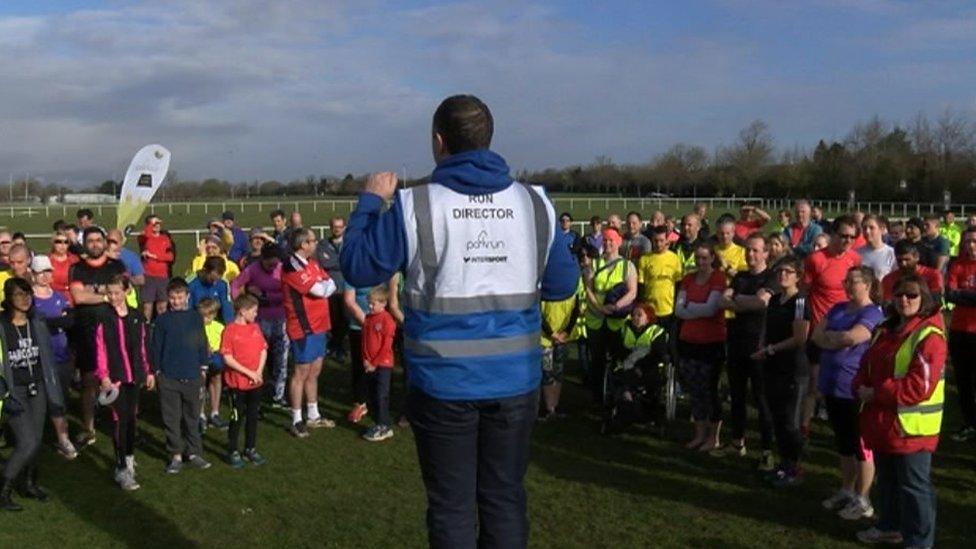How did a weekend fun run cause a national outcry?
- Published
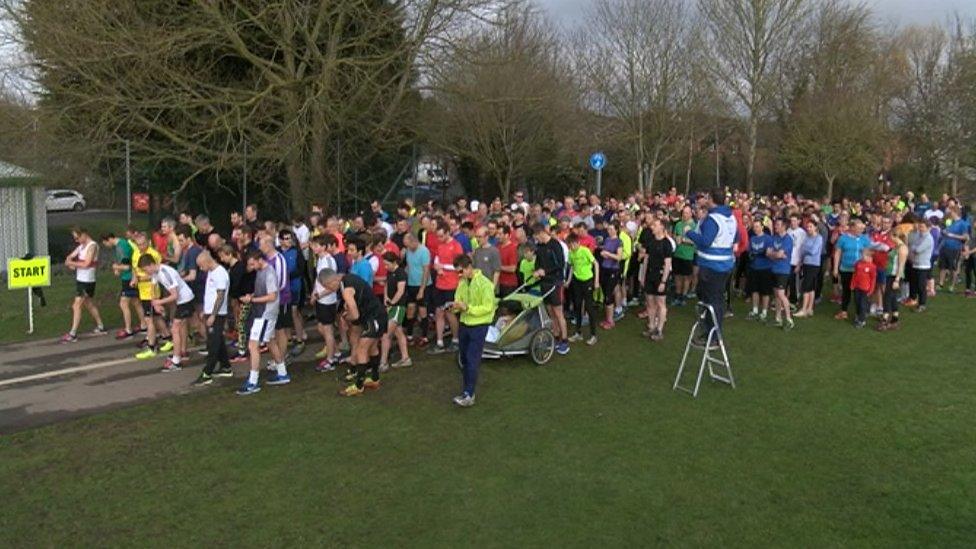
Stoke Gifford Parish Council voted to become the first in the world to charge Parkrun a fee for use of its grounds
A tiny British suburb has sparked an international outcry over its decision to charge organisers of a free weekend fun run for using its park. But why are people so angry?
When Stoke Gifford Parish Council voted to become the first in the world to charge Parkrun a fee for use of its grounds, organisers said it meant the end of the event in Little Stoke, near Bristol.
Some of the biggest names in sport have called the decision a "disgrace", while devotees of the phenomenon, which claims to attract about 2m participants worldwide, fear it may set a precedent which could threaten Parkrun's future.

Dame Kelly Holmes said the decision to charge Parkrun was a "disgrace"
Marathon runner Paula Radcliffe, external and Dame Kelly Holmes, external were among the first famous names out of the blocks to air their views.
Both took to Twitter, where they called for the events to remain free.
Olympic gold medallist James Cracknell argued, external that encouraging people to exercise made them "healthier and happier", saving money for local authorities, while the London Marathon also voiced its support, external.
Broadcaster Ben Fogle said, external the council should "hang their heads in shame".

Paula Radcliffe said the event should be "free for everyone, always"
The great and good of the sporting world echoed the sentiments of many runners, who expressed shock at the council's decision to limit an activity which promotes healthy activities.
Steve Maby, who attended Tuesday's vote, said he went to the meeting and was "so disappointed" by the result.
Writing on the Parkrun UK Facebook page, external, he said: "Parkrun is an amazing community resource, so gutted the council felt the need to kill it off."
Council chairman Ernie Brown has said the council has been deluged with angry e-mails, and "fully understood" the upset.
He stressed the charge would not apply to individual runners, but to events held under the umbrella of a single body.
"Parkrun is an organisation, and, like a club, they pay for the use of facilities," he said.
Although individual events are volunteer-run, councillors argued not-for-profit Parkrun's status as a registered company means it should be classed in the same league as football clubs, who do pay to use public spaces.
On the Parkrun UK Facebook, external page, Paul Bertenshaw agreed. He said: "I can see their point. All parks cost money to run and with the cuts that all council authorities have to manage."
On Tuesday's BBC story ComradeX said: "Parkrun is a business. Registered company. It has Directors who are presumably paid.
"Parks are for personal recreation. If something is not for personal use then in is commercial. If a circus used the council property they would be charged for the facilities. Parkrun should factor in the event cost and pay up. It really is that simple."
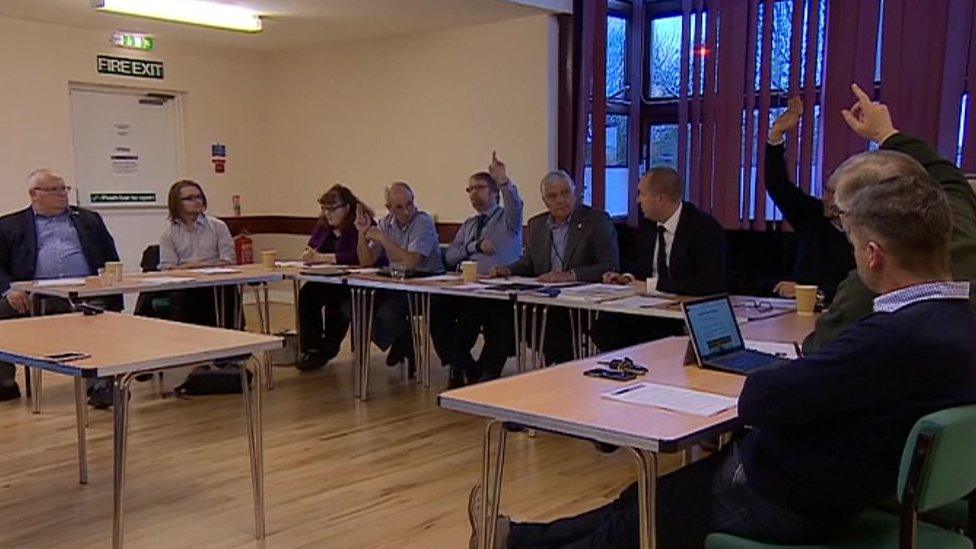
Parkrun organisers said Stoke Gifford Parish Council's decision meant the end of the Little Stoke event
Eléna Serafinas suggested, external it might be reasonable to bring in a small charge when organisations or small businesses use the park.
"To be honest I see so many boot camps, personal fitness trainers and running groups in Sutton park and i know it's different because they're not voluntary but it got me thinking 'hang about, you've got a free space to run your business in, surely you should be paying some of your earnings...towards the upkeep of the park'"
"Surely a £ or 2 is little price to pay for such a fantastic opportunity?"
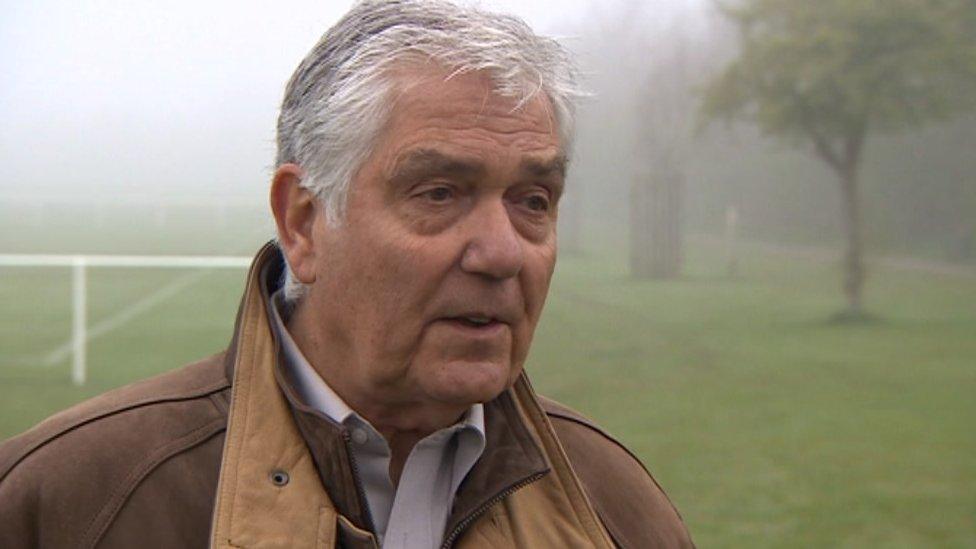
Cllr Ernie Brown, from Stoke Gifford Council said he "fully understands the upset"
But Parkrun's Tom Williams said imposing a charge would contradict its founding ethos "and would set a precedent that threatens our future".
Alex Radford, who described himself as a regular run director, said he "vehemently" disagreed with the "dappy decision" - and refuted claims people in his position were paid.
He wrote, external: "Once up and running each Parkrun is self funded by its own donations from its runners and local businesses. This statement of "paid directors" is just drivel. We have to pay to replace equipment and we don't mind doing it."
Mr Williams said Parkrun has had "unprecedented success" in engaging the least active and encouraging them to exercise regularly.
"Providing free weekly access has been fundamental to this and we are disappointed that this opportunity is to be removed for the residents of Little Stoke," he said.
But with a petition against the decision attracting nearly 20,000 signatures already, the finish line might not be quite out of sight.
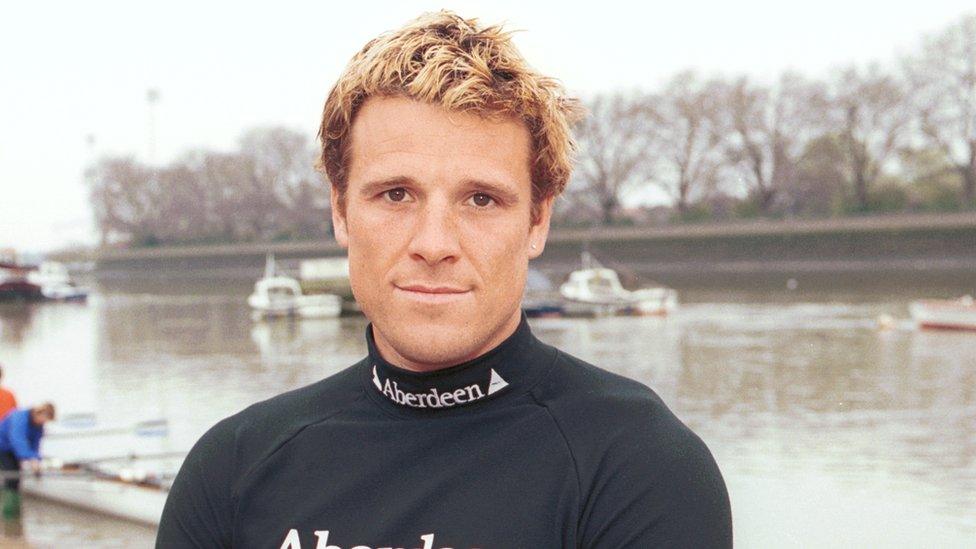
James Cracknell said Parkrun events make people "healthier and happier"
- Published12 April 2016
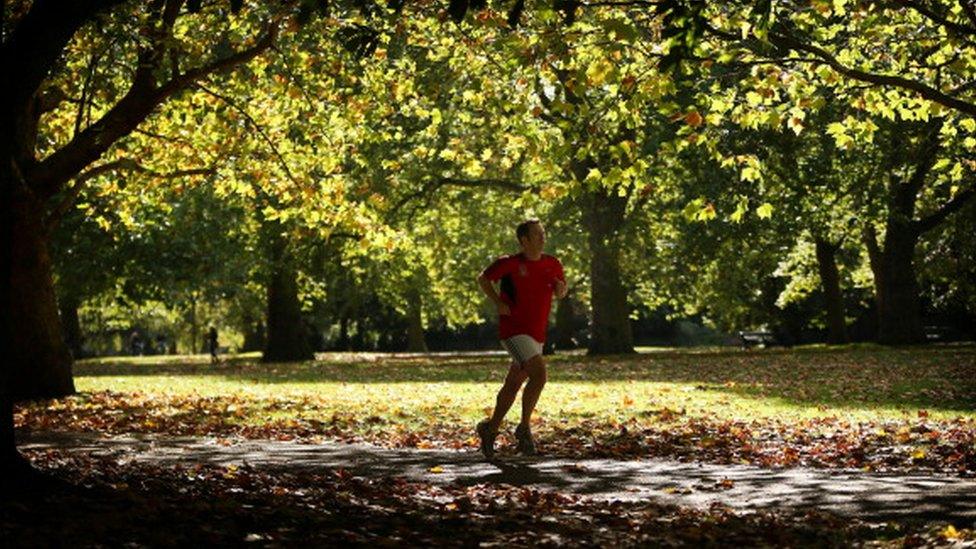
- Published4 October 2014
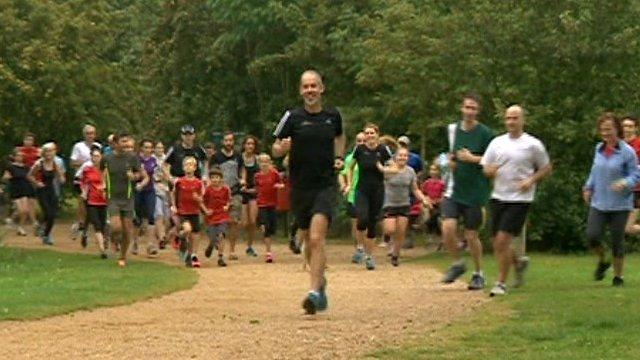
- Published12 April 2016
